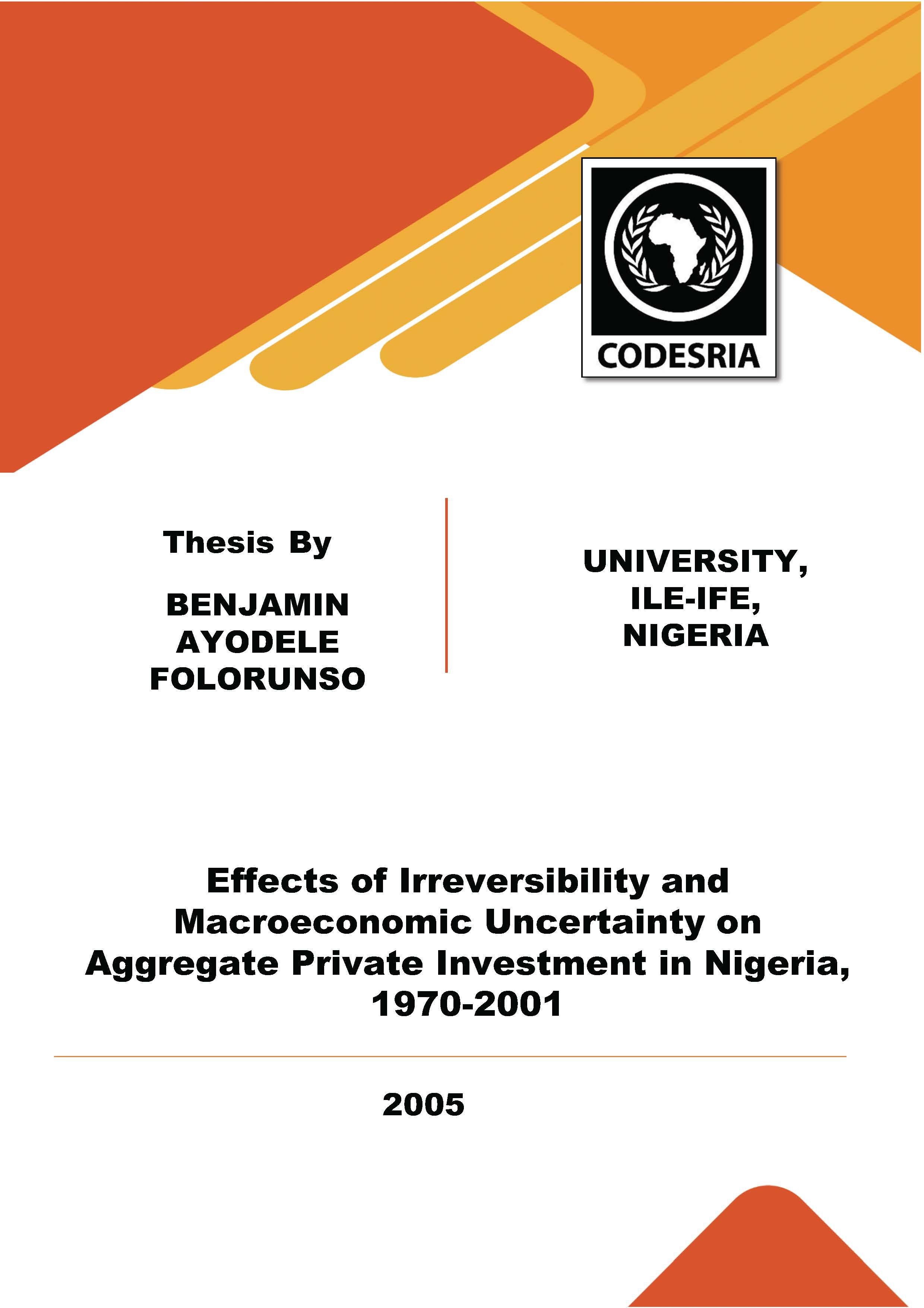Effects of Irreversibility and Macroeconomic Uncertainty on Aggregate Private Investment in Nigeria, 1970-2001
Keywords:
Private investment, macroeconomics, uncertainty, NigeriaSynopsis
The study investigated the determinants of aggregate private investment and examined private investment decisions in the face of uncertainty. Specifically, it analyzed the effect of irreversibility on private investment decisions. It also examined how various dimensions of macroeconomic uncertainty affected private investment decisions in Nigeria. The trend patterns of Nigeria's private investment spendings were also analyzed. The study covered a period of thirty-two years starting from 1970 to 2001. Annual and quarterly time series data were employed. The time series data were obtained from the Central Bank of Nigeria (CBN) Statistical Bulletin, Federal Office of Statistics (FOS), World Banks publications and IMF International Financial Statistics Yearbooks. Descriptive methods of analysis were employed in trend analysis while Error Correction Modelling (ECM) techniques were adopted in the estimation of the specified aggregate private investment models. Both nominal and real private investment models were examined using the logarithmic and growth rate formulations. The time series properties ofvariables were ascertained using the Dickey-Fuller (AD), Augmented Dickey-Fuller (ADF) and Phillips-Perron (PP) unit root tests. The study showed that private investment behaviour of the Nigerian economy was highly unpredictable during 1970-2001 period. It was, however, more unstable in real private investment than its nominal counterpart. At 5 per cent level of significance, it was found that public investment, income, real interest rates, credit to private sector and debt variables explained about 80 per cent variation in private investment. Private investment in Nigeria was affected positively by income, public investment and credit to private sector while it was negatively affected by real interest rates and the size of debt. The negative sign of irreversibility measure, though not significant, revealed that there was reluctance on the part of private sector as regards investment spendings. It was also revealed that increased xivuncertainty depressed level of private investment in the Nigerian economy between 1970 and 2001. Indeed, inflation rates, exchange rates, interest rates and fiscal deficitsuncertainties were most detrimental to private investment recovery in Nigeria. For the Nigerian economy to achieve a 20 per cent increase in private investment, the overall level of uncertainty must be reduced by at least 5 per cent. The study concluded that high levels of uncertainty indicators caused private investment to decline between 1970 and 2001. Irreversibility affected the timing of private sector investment spendings only in the short run. Finally, macroeconomic uncertainty during 1970-2001 made private investors less eager to invest. Thus, irreversibility and aggregate uncertainty impacted negative effects on private investment spendings in Nigeria.






